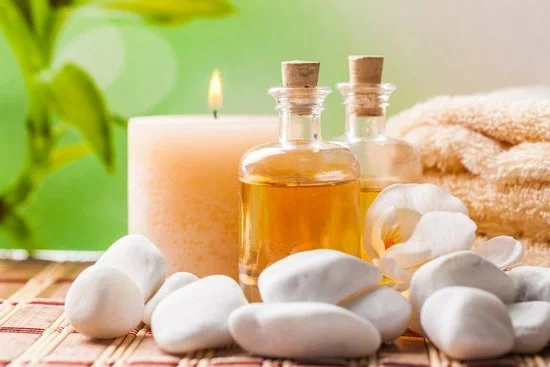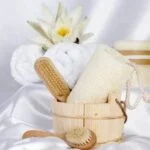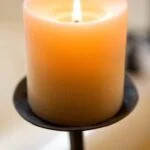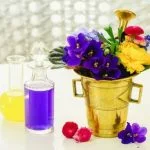Aromatherapy has been gaining popularity as a holistic approach to health and wellness, with the use of essential oils and herbs to promote relaxation, improve mood, and alleviate certain ailments. But do aromatherapy herbs get you high? This article aims to explore the connection between aromatherapy and recreational use of herbs, debunking misconceptions and addressing potential risks.
Aromatherapy is a practice that involves using natural plant extracts to promote physical and psychological well-being. These extracts, known as essential oils, are often derived from herbs, flowers, and other botanical sources. The use of aromatherapy has been associated with various health benefits, such as reducing stress and anxiety, improving sleep quality, and easing symptoms of certain conditions like headaches or nausea.
In this article, we will delve into the concept of aromatherapy and its benefits before examining the potential for misuse of aromatherapy herbs for recreational purposes. We will also explore common myths about using aromatherapy herbs to get high, as well as the legal and ethical considerations surrounding this controversial topic. It is important to understand the implications of using aromatherapy herbs outside their intended purpose in order to make informed decisions about their usage.
Understanding Aromatherapy
Aromatherapy is a holistic healing treatment that uses natural plant extracts to promote health and well-being. The practice involves using essential oils and other aromatic compounds to improve a person’s psychological or physical health. It is often used in conjunction with other holistic treatments such as massage therapy and acupuncture to enhance the overall therapeutic experience.
The benefits of aromatherapy are numerous, with different herbs and oils offering unique advantages. Some common herbs used in aromatherapy and their effects include:
- Lavender: Known for its calming and soothing properties, lavender is often used to reduce stress and anxiety.
- Peppermint: This herb is invigorating and can provide relief from headaches and nausea.
- Chamomile: Famous for its relaxation properties, chamomile can help with sleep disorders and anxiety.
When used appropriately, these herbs can have a positive impact on one’s overall well-being without causing any psychoactive effects. However, it is important to note that using aromatherapy herbs for recreational purposes to “get high” is not the intended use of these plants and can pose potential risks.
As for the question “do aromatherapy herbs get you high,” the answer is no when they are utilized in their proper context for aromatherapy practices. The high concentration of essential oils in these herbs can be effective in treating various ailments, but they should not be misused for recreational purposes. It is crucial to understand the distinction between using these herbs for therapeutic reasons versus attempting to achieve a mind-altering effect.
Common Aromatherapy Herbs
Lavender
Lavender is one of the most popular herbs used in aromatherapy due to its calming and soothing effects. It is commonly used to alleviate stress, anxiety, and insomnia. The scent of lavender has been known to promote relaxation and improve sleep quality, making it a staple in many aromatherapy practices.
Peppermint
Peppermint is another widely used herb in aromatherapy for its invigorating and uplifting properties. Its refreshing aroma can help to boost energy levels, enhance mental clarity, and ease headaches. Peppermint oil is often utilized in diffusers or massage blends to provide a cooling sensation and promote feelings of vitality.
Chamomile
Chamomile is known for its gentle and calming effects, making it a popular choice for reducing stress and promoting relaxation. This herb is commonly used in aromatherapy to soothe nerves, alleviate tension, and improve sleep quality. The sweet floral scent of chamomile can create a peaceful atmosphere conducive to unwinding and finding tranquility.
Overall, these common aromatherapy herbs offer a range of benefits that contribute to overall well-being when used appropriately in a controlled manner. It’s important to note that while these herbs have therapeutic properties, they are not intended for recreational use or getting high.
The Connection to Getting High
Aromatherapy has long been used as a holistic healing practice, utilizing the natural scents of various plants and herbs to promote physical, emotional, and mental well-being. The use of essential oils derived from these herbs is known to have calming, uplifting, and even therapeutic effects when used properly.
However, there has been a growing curiosity about whether these aromatherapy herbs can be used for recreational purposes and if they have the potential to produce a “high” similar to that of recreational drugs.
It’s important to understand that the primary purpose of aromatherapy is not to induce intoxication or alter one’s state of mind. Aromatherapy is intended for therapeutic purposes and should be approached with caution and respect for its traditional uses. Nevertheless, it’s worth exploring the idea of how certain aromatherapy herbs could potentially be misused for recreational purposes.
Here are some common aromatherapy herbs that have sparked interest in connection to getting high:
- Lavender: Known for its calming properties
- Peppermint: Often used for its invigorating effects
- Eucalyptus: Used for respiratory support and mental clarity
Although these herbs are generally safe for aromatherapy practices when used appropriately, it’s essential to acknowledge the potential risks and misconceptions associated with trying to use them recreationally. It’s crucial to thoroughly educate oneself on the proper use of these herbs and respect their traditional and intended purpose in aromatherapy.
Myths vs Facts
When it comes to the question of whether aromatherapy herbs can get you high, there are several misconceptions that need to be addressed. The practice of aromatherapy involves using essential oils and plant extracts to promote overall well-being, relaxation, and a positive mental state.
It is not intended for recreational use or to produce a high. Aromatherapy, when used correctly, can provide various health benefits such as reducing stress, relieving anxiety, improving sleep quality, and easing certain types of pain.
One common misconception about aromatherapy herbs is that they have psychoactive properties that can induce a high. However, the truth is that most aromatherapy herbs do not contain the compounds necessary to produce any kind of intoxicating effect. For example, popular aromatherapy herbs like lavender, peppermint, and eucalyptus are known for their calming and soothing effects on the mind and body, but they do not have the same properties as substances that are typically associated with getting high.
It is important to distinguish between the legitimate practice of aromatherapy for therapeutic purposes and the misuse of aromatic herbs in an attempt to achieve a recreational high. Using essential oils or herbal extracts inappropriately or in excessive amounts can be harmful and may result in adverse reactions or health risks rather than producing any pleasurable sensations.
Therefore, it is crucial for individuals to approach aromatherapy with an understanding of its intended purpose and use it responsibly for its potential health benefits.
| Common Aromatherapy Herb | Effect |
|---|---|
| Lavender | Calming and relaxing |
| Peppermint | Refreshing and invigorating |
| Eucalyptus | Cleansing and clearing |
Potential Risks
Aromatherapy is a practice that involves using natural plant extracts, known as essential oils, to promote physical and mental well-being. While aromatherapy is often used for its therapeutic benefits, some individuals have questioned whether certain aromatherapy herbs can produce psychoactive effects, leading to the question: do aromatherapy herbs get you high? The potential risks associated with using aromatherapy herbs for recreational purposes must be carefully considered.
When it comes to the question of whether aromatherapy herbs can produce a “high” or altered state of consciousness, it’s important to distinguish between the intended use of these herbs in aromatherapy and their misuse for recreational purposes. While essential oils derived from aromatic plants may have mood-enhancing properties when used properly in aromatherapy practices, they are not meant to be ingested or used recreationally.
In fact, ingesting essential oils or using them inappropriately can lead to serious health risks and side effects.
One potential risk of misusing aromatherapy herbs for recreational purposes is the potential for toxicity. Essential oils are highly concentrated extracts that can be toxic when ingested or used improperly. For example, ingesting certain essential oils can lead to gastrointestinal issues, liver damage, and even neurological problems. Additionally, inhaling large amounts of certain essential oils directly or using them undiluted on the skin can result in irritation, allergic reactions, and respiratory issues.
| Potential Risks | Side Effects |
|---|---|
| Toxicity | Gastrointestinal issues, liver damage, neurological problems |
| Physical Irritation | Skin irritation, allergic reactions, respiratory issues |
Legal and Ethical Considerations
Aromatherapy has been used for centuries as a holistic healing practice that harnesses the natural properties of various plants and herbs to promote physical, emotional, and mental well-being. However, some individuals may be curious about whether aromatherapy herbs can be used for recreational purposes to get high. In this section, we will explore the legal and ethical considerations surrounding the use of aromatherapy herbs for recreational purposes.
Legal Implications
In many regions, the use of certain herbs for recreational purposes is strictly regulated or prohibited by law. While aromatherapy herbs are generally considered safe when used appropriately in their intended form (e.g. essential oils or dried herbs), it’s important to understand that altering their use for recreational purposes may have legal implications. Some herbs commonly used in aromatherapy may be classified as controlled substances when consumed or distributed in a manner inconsistent with their intended usage.
Ethical Considerations
When considering the ethical implications of using aromatherapy herbs to get high, it’s important to recognize that these substances are not intended for recreational use. Aromatherapy is rooted in a tradition of promoting holistic well-being and should be approached with respect for its cultural and therapeutic significance. Using aromatherapy herbs for recreational purposes can raise ethical concerns related to cultural appropriation, exploitation of traditional practices, and potential harm to oneself and others.
Seeking Professional Guidance
If individuals are considering using aromatherapy herbs in ways that deviate from their traditional or intended applications, it is advisable to seek guidance from qualified professionals such as aromatherapists, herbalists, or healthcare providers. These experts can provide valuable insights into the safe and appropriate use of aromatic plant materials while also offering alternative strategies for achieving relaxation and well-being without resorting to potentially risky behaviors.
Conclusion
In conclusion, the practice of aromatherapy involves using essential oils and herbs to promote physical, emotional, and mental well-being. While aromatherapy can offer various benefits such as relaxation, stress relief, and improved mood, it is important to understand that the goal of this holistic approach is not to induce a “high” or altered state of consciousness. Aromatherapy herbs are intended for therapeutic use and should be approached with mindfulness and respect for their intended purpose.
It is crucial to debunk the misconception that aromatherapy herbs can be used to get high. The effects of aromatherapy herbs are meant to be subtle and gentle, supporting the body’s natural processes rather than altering them in an intense or intoxicating manner. Using these herbs for recreational purposes can pose potential risks and side effects, especially when they are not used in accordance with their intended purpose.
Ultimately, individuals interested in aromatherapy should approach the practice with a genuine desire to support their well-being in a holistic manner. Awareness of the potential risks and ethical considerations surrounding the use of aromatherapy herbs for recreational purposes is essential for making informed decisions about how these substances are utilized. It is important to prioritize safety, legality, and respect for the traditional and therapeutic uses of these herbs within the practice of aromatherapy.
Frequently Asked Questions
What Herbs Can You Smoke and Their Benefits?
There are several herbs that can be smoked, such as sage, lavender, and rosemary. Each herb has its own unique benefits, including relaxation, stress relief, and respiratory support.
Do Herbal Cigarettes Give You a Buzz?
Herbal cigarettes typically do not contain nicotine or other psychoactive substances found in traditional tobacco products. As a result, they do not usually provide a “buzz” or the same sensations associated with smoking regular cigarettes.
Is It Bad for Your Lungs to Smoke Herbs?
While herbal smoking may seem like a natural alternative to traditional tobacco, it is still inhaling smoke into your lungs – which can have negative effects on respiratory health. It’s important to be mindful of the potential risks and consult with a healthcare professional.

Are you looking for a natural way to improve your health and wellbeing?
If so, aromatherapy may be the answer for you.





